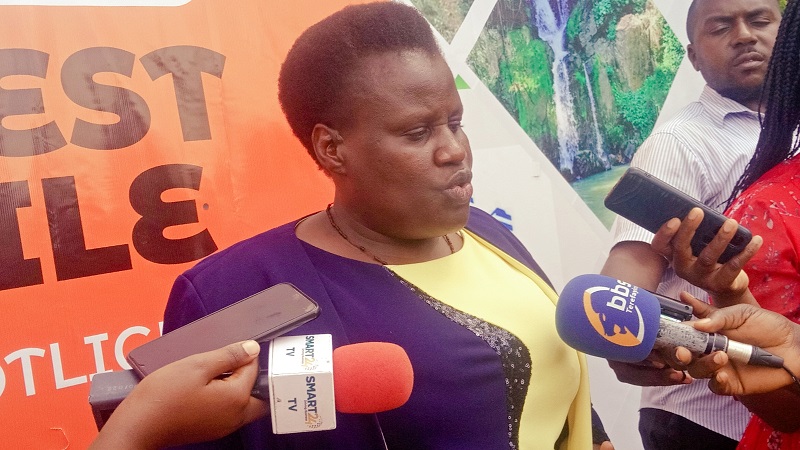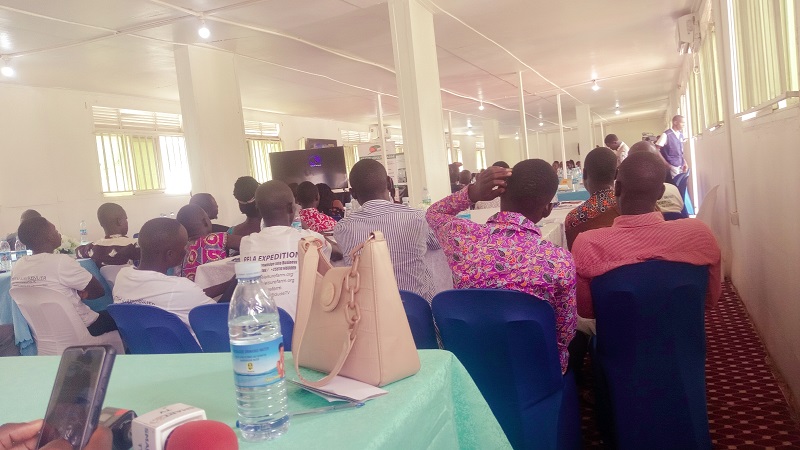
KAMPALA – Professor Gudula Naiga Basaza, Founder and Managing Director, Professor. Gudula – GLF has called on investors to take advantage of the ‘virgin’ West Nile region for different investments, especially in the areas of agriculture, tourism and business.
GLF, a social enterprise providing various agribusiness development services to especially youth-owned micro and small enterprises (MSEs) in the agricultural sector operates in 10 regions of Uganda. GLF has been in existence for the last 13 years with a reach of 112,900 youths who are value chain linked – transforming themselves, and their communities but also contributing to national transformation.
Professor. Gudula was on Monday speaking during the West Nile Business Symposium at the Farm’s head offices in Kira Municipality.
According to her, West Nile is home to numerous business opportunities that, if tapped and exploited to their full potential, can drive the development of the region and the country.
She revealed that they have been working in the region for the last four years and they have been able to incubate a total of 192 youths from 32 parishes, who have in turn incubated another 640 youths.
“[They] are transforming their communities,” she said.
Through the symposium, Professor. Gudula noted that they want to unveil the opportunities in this region and support the youths to work with business people.
“West Nile has a good opportunity for commercial agriculture because it has a vast land but also the majority of their population – over 70% is youths who will provide energetic human resources.”
“They have fresh waters, river Nile crosses the entire region and when you look at all countries where R. Nile crosses, they have production through the year. Also, the region is well endowed with minerals. In terms of tourism, it is a very beautiful area, looking at all the physical features of the world, be it, lift valleys, mountains, hot springs, animals,” she added.
Prof. noted that there are a lot of visitors coming in and out of the region for trade which makes it a good site for investment.
However, she decried government policies that are intended to help youths but are never taken to the grassroots.
“Whenever these policies are being disseminated, they are in beautiful conference rooms, so you find that the ordinary person who needs to benefit from it has no idea it exists.”
To bridge this, she said GLF is having district meetings from this July up to the end of September where they will be engaging the youths to know what is happening in their areas.
The other biggest challenge in the region has been electricity which she said has often jeopardized production.
“Once youths have no access to electricity, they’ll always sell raw materials and these are things that are heavy, require bulky transport and have a very small profit margin. Those who try to do processing are using fuel which makes the process very expressive. We call upon the government to expedite the process of providing electricity in the region.”
Mr. Ogwang Yafesi – Commissioner Agribusiness, Ministry of Agriculture revealed that over 73% of Uganda’s population depends on agriculture.
“It also contributes to the total export of the country of about 55% and also contributes to youths’ employment of about 73%.”
He said that they have policies geared at transforming Ugandans from low-income to middle-income earners come 2040 as a way to improve household income and improve quality of life of Ugandans.
“Under NDPIII, we seek to enhance value-addition, strengthen the private sector, and create jobs, among others. Agro-industrialization has come out as a key development strategy for the government. This is aimed at increasing the commercialization and competitiveness of agricultural production and agro-processing.”

In West Nile, he said they have earmarked enterprises that fit the climatic conditions of the region.
Ms. Diana Nanono, the head of PSFU at Ministry of Finance, Planning and Economic Development urged the youth to tap into the different government financing initiatives like the Parish Development Model.
During the symposium, Gudie Health Plan was launched and Gudie Laboratory was opened at Gudie Leisure Farm.
Launched by the mayor of Kiira Municipality, Julius Mutebi Nsubuga, Gudie Health Plan will provide essential healthcare to Ugandans and the Gudie Laboratory will carry out human diagnostics and scientific research.
The Gudie Laboratory is currently making research on a mosquito-repellant jelly and lotion called Mrepel. It is an organic product extracted from plants grown on Gudie Leisure Farm.
To date, the company, which operates in 27 districts in Uganda including Kampala, Mukono, Wakiso, Lwengo, Kyotera, Masaka, Kiryandongo, Luweero, Dokolo, Moroto, Arua, Amolatar, Nwoya, Soroti, Jinja, Namisindwa, Tororo, Hoima, Mbarara, Isingiro, Kabale, Kisoro, Kikuube, Fort Portal, Kamwenge and Kassanda, has been able to train 112,900 young people who are now part of its business development network.





